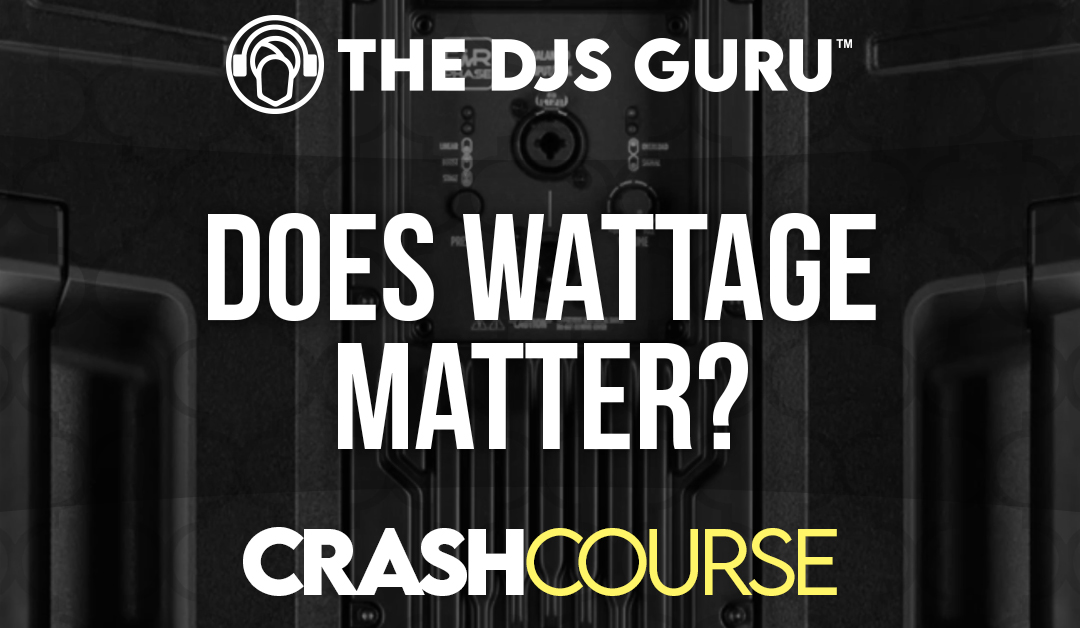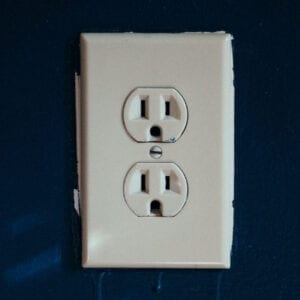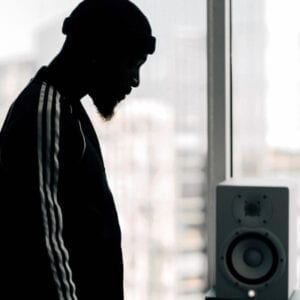Does speaker wattage matter?
Admit it – at some point in your DJ career, you’ve probably purchased a speaker based on how many watts it had. It’s ok, I’ve done it, and most likely the majority of other DJs you know have as well. After all, that seems to be what manufacturers like some of our favorites Yorkville, RCF, and Electro-Voice are now pushing in big bold letters on every pop-up ad and catalog. But does speaker wattage matter?
While speakers differ in their cabinet design, inputs, and build quality, many DJs still end up choosing their speakers based on wattage. So is that what we should be focusing on when it comes to picking up a new sound system? Should we be sucked in the next time we see “Now with TWO THOUSAND watts!!!” plastered across a speaker grille? Does speaker wattage matter? You may be surprised to hear this, but no! Today I’m going to tell you why and also give you a little insight into how to better compare one speaker to another.
What do watts actually measure?
So, does speaker wattage matter? This probably isn’t news to you, but watts are a measure of electrical power. To get geeky for a second (and I promise, only a second), one watt is equal to a certain amount of electric current (1 amp) flowing across an area of electric potential difference (1 volt). To make it simpler, watts are a measure of energy transfer. They are also a measure of how much work you can get done with electricity. But you didn’t come here for a science lecture, you came here for speaker buying advice.
Does speaker wattage matter? The truth about watts
In the above explanation of what a watt is, you’ll notice I didn’t mention anything about sound or volume. That’s because watts don’t directly measure the volume or sound output of a speaker. If a speaker is rated at 1000 watts, that simply tells you that the speaker is capable of pulling 1000 watts of power from an electrical socket. What it won’t tell you is how efficiently that speaker is going to use those 1000 watts.
While it is true that a speaker with more power available may produce higher output levels, the speaker’s efficiency, components, and cabinet design will all play a big role in how loud it gets. One of the most important factors in determining how loud a speaker will be is its sensitivity Sensitivity explains how well the speaker can convert the electrical power it is receiving (the watts) into sound energy. Speaker sensitivity is often measured in decibels (dB), so let’s talk about those.
Decibels
The sound that we hear is created when objects create pressure waves in the air. These waves travel to our eardrums and vibrate our tympanic membranes. These small layers of tissue transmit those vibrations to our brain for processing into recognizable sounds. Bigger waves mean higher pressure which means greater sound pressure levels (SPLs). Decibels are the units that are used most often to measure sound pressure levels. The trickiest thing about the decibel scale is that it is logarithmic. What does that mean? For every 10db you go up the scale, the sound is 10 times more powerful. So 60db is 10 times more powerful than 50db, and 70db is 100 times more powerful than 50db.
In addition to watts, most DJ speakers will have an SPL or dB rating in their product descriptions. These measurements are usually gathered by playing pink noise through the speaker at maximum volume. Then, the dB level is recorded with a meter at a specified distance. This number, called “max SPL,” gives the absolute highest volume level that the speaker is capable of reproducing.
Putting watts and decibels together
At this point you may be asking yourself “Alright Jordan, so should I just forget about watts completely then?” And in reality, you shouldn’t totally disregard a speaker’s wattage rating. It can at least get you in the ballpark as far as a speaker’s capabilities.
So here’s the nitty-gritty: In general, for every doubling of watts a speaker or amplifier can produce you will gain 3 decibels of volume, which is the smallest difference that most people can notice. So while you will be able to hear the difference between a 500-watt speaker and a 1000-watt speaker, it will not be “double” the volume. You can thank the logarithmic decibel scale for that. However, if you get a speaker or amp with 10 times the power, you will get a perceived “doubling” of the loudness. That means that a 100-watt speaker will be twice as loud as a 10-watt speaker. A 1000-watt speaker will be twice as loud as a 100-watt speaker. That also means, however, that if you want to double the volume again, you are going to need 10,000 watts to do so.
At the end of the day, a difference of a few hundred watts (or even 1000) means far less than a difference of 6 or 10dB.
How to pick speakers
Now that we’ve gotten all of the science out of the way, let’s figure out how to pick speakers. So far we’ve learned:
- Watts are a measure of electrical power, not volume.
- A speaker’s volume is determined by a combination of efficiency, sensitivity, components, cabinet design, and power.
- Decibels are the real measure of volume.
So when you’re looking at speakers, don’t be swayed by an 800-watt speaker vs a 1000-watt speaker vs a 1500-watt speaker. The differences in power output will make a minimal difference in how loud it is. Instead, look at the max SPL or dB rating. This specification is the loudest sound level that the speaker is capable of producing when turned all the way up. While the speaker will most likely never hit the max SPL in normal use, it’s a good way to compare two different speakers. Most quality DJ PA speakers will fall somewhere in the 110-135 dB range. Remember, 10db of difference is considered a doubling of volume. A 130dB speaker will sound twice as loud as a 120dB speaker.
Final thoughts
Taking all of this into consideration, it’s up to you to determine how much of a difference in dB is worth the difference in price. Is a speaker with 132dB max SPL worth $250 more than a speaker with 130dB max SPL? In my opinion, no, unless the more expensive speaker has other benefits like better construction or inputs. However, a 130dB speaker may very well be worth the extra $200 in cost over a similar model that only hits 123dB.
Questions or comments, please leave them in the comment section below! Or, feel free to contact us directly.





